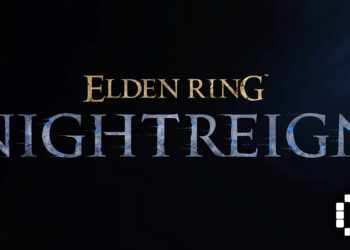Lemon Sky Studios, Malaysia’s own studio who works on outsourced games, was recently named in a YouTube documentary discussing crunch in outsourcing studios.
**UPDATE 6.00pm March 5th: Lemon Sky has released a statement on the issue, which has been appended to the end of the article
YouTube channel People Make Games did an exposé on the topic, having spoken to various Malaysian former employees at Lemon Sky Studios as well as Indonesian offshoot studio Brandoville about crunch.
Chris Bratt, who hosted the program, also explained how the studio allegedly got away with not compensating employees who had to work long hours to meet strict deadlines.
“Now Malaysia does have an employment act that says employees who overtime are meant to be paid at a rate of no less than one and a half times their hourly rate of pay, but that’s not happening here”, Bratt says in his video. “As another employee explained to me, of all the overtime they did at their company, of which was a substantial amount, they were only ever asked to officially do so once”.
Bratt had interviewed employees under condition of anonymity, and many of them were aware of this loophole.
“That’s the thing, the company never asked for it. Therefore, they do not have to pay for our OT. But we weren’t given enough time to complete our task”, the source says. “If we work overtime, is only because we are ‘slow’ and need to ‘catch up’. It’s always our fault that we couldn’t complete it on time. That’s how Lemon Sky puts it”.
One more employee even mentions the overtime as being an “unspoken rule” in the company, that is to say you were expected to work long hours.

One of the 3D animators had reportedly worked 70 hour weeks over a 5-month period on the project. For context, that would be the equivalent of working 8 hours a day every day of the week, if your week was 9 days long and your idea of a weekend was one day with 2 less working hours.
Bratt also brought up another issue, was the lack of a clear career path in the studios. While he explained that Lemon Sky Studios’ starting pay was actually decent (as mandated by Malaysian employment law), there wasn’t much room to be promoted and move up to a higher paygrade.
“As a result, there’s a huge turnover of staff each and every year over at Lemon Sky as new, young fresh graduates come over and work really hard and potentially burn out after just a couple of years, only to be replaced by more young fresh graduates should that happen”, Bratt explains.

One of the sources adds on that maintaining these bad working conditions is how they build a broad portfolio of clientele.
“In order to be appealing to a Triple-A client, like Activision-Blizzard, you need to say ‘I have 100-150 people and we can do this much in this much time’ “, they said. “That gets you in the door, and after that you negotiate a price point. Often times, it’s the artist scheduling is the part that ends up getting squeezed”.
Bratt also explained that the crew had also spoken to staff members of Brandoville, a similar studio in Indonesia. The situation was also very dire, with employees living on-site at the studio and also being pressured into waiving their company-mandated time off.
The point he’s trying to make is that this isn’t the story of one evil company in the industry, but rather that its a systemic issue in the industry at large. The public-facing companies making games will be happy to say they didn’t have any crunch on their end, since the action of the outsource studios is outside the purview of their responsibility.
The Local Industry Reacts To Lemon Sky Studios
Since the video’s publishing, local industry figures have also weighed in on their issue. Lee Ying Foo, co-founder of WiGout Malaysia, responded to the video with her own take, taking the industry to task for exploiting cheap labor.
“Many AAA games get outsourced to our region, and we know why; we’re the cheaper, faster option. Games are made at the cost of people’s lives whr [sic] the only upside to this is your name in the credits, even tho it’s not guaranteed. Yet, it’s still a glorified and celebrated practice.”, she said in a tweet.
“When you hear people talk about the industry here, it’s often emphasized with “how much talent there is”, but our identifying factor shouldn’t be about our ability to produce “good assets””, she adds.
Lemon Sky’s Statement :
Lemon Sky Studios has since responded with their statement on the crunch issue. Here it is, in full:
We abide by all Malaysian employment laws pertaining to work hours, and the contractual terms and conditions of employment with our employees. The allegations made against Lemon Sky Studios regarding overtime payments are factually and legally inaccurate. This position applies to all employees of Lemon Sky Studios (including former employees).
We value the efforts of our employees and take employee wellbeing and mental health very seriously. In addition to conducting an ethical business and adhering to the standard industry practices, we have gone above and beyond to create an open and holistic environment where our employees have access torecreational opportunities and a space in which their mental health is given priority.
As in any situation where allegations are made, management will take appropriate measures in response. This will include a process for obtaining feedback from ALL of our employees regarding their individual concerns.
Accordingly, we are surprised that such allegations are targeted at Lemon Sky.We remain steadfast in our pursuit to Make Good Art and we will continue to do so as we grow and improve.
We’ve also previously spoken to founder of Metronomik, Wan Hazmer, on his thoughts on crunch. You can listen to that on our podcast, The Brave Room.





![[GUIDE] Fantasy Life i: The Girl Who Steals Time Codes & How to Redeem Them](https://cdn.gamerbraves.com/2025/06/Fantasy-Life-i_Codes_FI-360x180.jpg)




![[EXCLUSIVE] Inside Japan’s Indie Game Revolution – An Interview with BitSummit Organizer Masahiko Murakami](https://cdn.gamerbraves.com/2025/05/BitSummit-Orgainzer_Interview_FI-360x180.jpg)
![[EXCLUSIVE] The Art of Adaptation: Developer Interview Details the OVERLORD Mobile RPG Lord of Nazarick](https://cdn.gamerbraves.com/2025/05/Lord-of-Nazarick_Interview_FI-360x180.jpg)
![[EXCLUSIVE] Taking Gundam in Bold New Directions – Interview with GQuuuuuuX Director Kazuya Tsurumaki](https://cdn.gamerbraves.com/2025/04/Kazuya-Tsurumaki_Interview_FI-1-360x180.jpg)


![[SEA Exclusive] From Shadows to Shipwrecks – Jennifer English Talks About Bringing Emotional Depth to Clair Obscur: Expedition 33](https://cdn.gamerbraves.com/2025/04/Clair-Obscur-Jennifer-English_Interview_FI-360x180.jpg)

![[EXCLUSIVE] Do the Game Interview – An Intimate Look at the Challenges of Game Development](https://cdn.gamerbraves.com/2025/04/Do-the-Game_Interview_FI-1-360x180.jpg)
![[EXCLUSIVE] Interview with the Minds Behind of Den of Wolves – 10 Chambers’ New Sci-Fi Heist FPS](https://cdn.gamerbraves.com/2025/04/Den-of-Wolves_Interview_FI-360x180.jpg)










